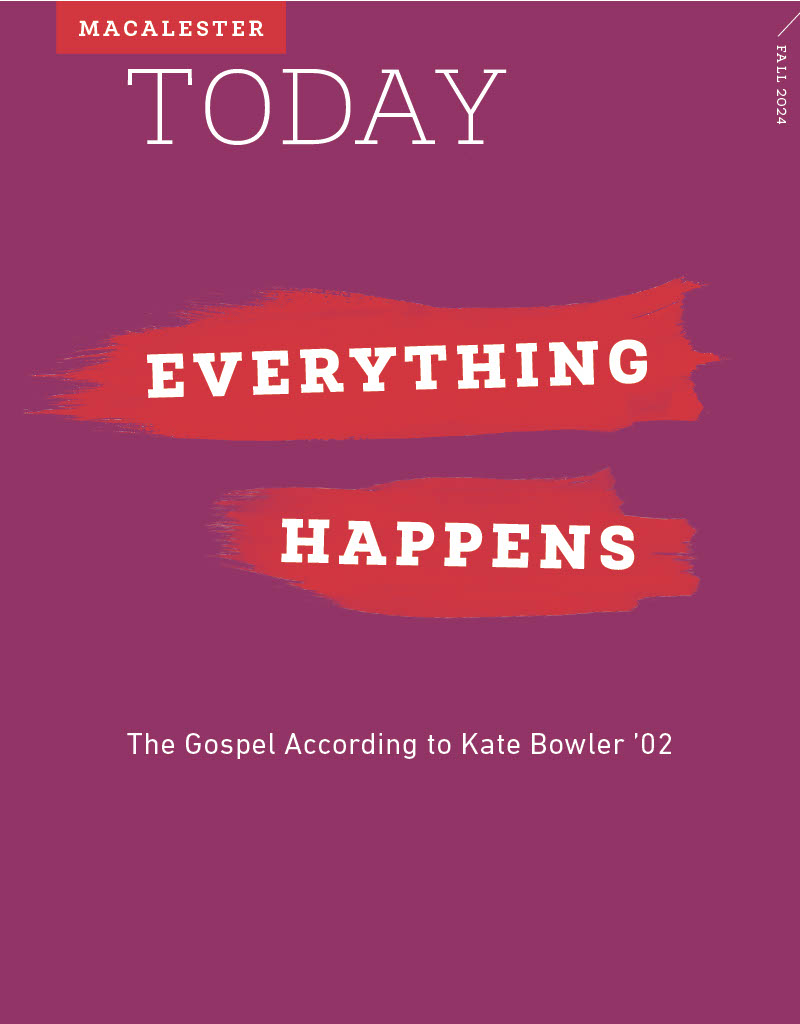
By Robyn Ross / Photo by Sabrina Guyton-Wright
Although she was raised in the heart of Chicago, Dr. Jo-Elle Mogerman ’92 grew up surrounded by nature. On warm evenings, she sat on the porch of her family’s bungalow, watching squirrels forage for food. She dug up worms in her tiny yard and listened as her father identified the neighborhood birds: blue jays, robins, house sparrows. Hear that song? he would ask. That’s a cardinal. It didn’t matter that her father didn’t have a high school diploma. He knew how to appreciate the wildlife in his own front yard.
Last year, Mogerman became the president and CEO of the Philadelphia Zoo—the first female and first Black chief executive in its 150-year history. Throughout her career, she has leveraged people’s fascination with exotic animals to inspire their curiosity about nature closer to home—like the urban wildlife she grew up watching with her father.
“People may not come to zoos for our conservation mission,” she says, “but they’re coming to show their little kids, ‘This is what an elephant looks like. This is what a cheetah is.’ It’s our job to grow that into empathy and action for wildlife.” For Mogerman, that means extending the zoo’s mission beyond its walls to reach communities of all cultural and educational backgrounds, and helping zoogoers appreciate the sparrows and squirrels that surround them every day.
Mogerman chose Macalester partly because her sister, Erica Hardiman George ’73, had attended. She had always loved animals and science and majored in biology, taking courses from Mark Davis, now the DeWitt Wallace Professor of Biology Emeritus. She interned twice at the Minnesota Zoo—once as a keeper and once in education—and spent a January term working at a sea turtle research and conservation facility in the Cayman Islands. Mogerman found she was happiest when she worked around animals but interacted primarily with people.
At Macalester she also was influenced by history professor Mahmoud El-Kati, who taught his students that stories are always shaped by their tellers’ perspectives. Mogerman became attuned to which viewpoints were present, and whose voices were missing, from any discussion, a skill she carried into her career. “That has been a hallmark of my brand,” she says. “Not coming in and telling, but coming in and listening and learning, and then developing solutions together.”
She earned a master’s in conservation biology at the University of Minnesota and, later, a doctorate in biology from the University of Illinois–Chicago. She started her career at Chicago’s Brookfield Zoo, where she developed a program that brought nature education into branches of the Chicago Public Library in Black, Polish American, and Mexican American neighborhoods. Drawing on what she’d learned in El-Kati’s classes, Mogerman created advisory boards in each community.
“We listened because they knew best about their culture,” she says. “They may not be, on the surface, ‘experts’—about an animal, an education program, or zoos—but they still are an asset because of their lived experience.”
Mogerman launched another program based on public input in her next job as vice president of learning and community at Chicago’s Shedd Aquarium. Chicagoans feel deeply connected to Lake Michigan, she says, but aquarium staff learned that many residents didn’t know anything about its fish. A few locals came up with an idea: Could Shedd build a mobile aquarium—like an ice cream truck— to travel the city and show people what’s in the lake?
Mogerman and her colleagues found a giant mobile aquarium, stocked it with the fish of Lake Michigan, and towed it to seven parks across Chicago. Curious onlookers learned to identify the fish, and kids discovered they could pursue a career as an aquarist. Families realized that litter and chemicals they disposed of improperly could end up in the lake and harm the fish.
“As zoo and aquarium professionals, a mobile aquarium never would have occurred to us,” she says. “But because we listened and said, ‘What’s of interest to you?,’ we were able to get that idea from the community.”
Mogerman has spent her first year in Philadelphia learning from colleagues and locals as she considers how the zoo can connect with a diverse population.
“Conservation has to be a platform for social good,” she says. For a zoo, this means diversifying the workforce by introducing first-generation college students like herself to the profession and offering them paid internships. It means making the zoo accessible to families from all backgrounds and income levels. And it means partnering with vendors from underrepresented businesses to create opportunities and expose those businesses to the zoo’s conservation mission.
In each of her jobs, Mogerman has helped the public cultivate an appreciation for animals they might otherwise overlook. When she lived in Chicago, she co-developed an online science course for DePaul University. She loved asking her students whether they’d ever seen a baby pigeon. Hardly anyone had. What does that mean? she prodded them. Her students realized that pigeon parents were raising their young somewhere out of human view—somewhere safe. Pigeons were smarter than they’d thought. They began to view the urban birds with more respect and curiosity.
Mogerman hopes to help Philadelphians pay closer attention to the animals they see every day, just as her father encouraged her to do.
“There are things to learn from the nature that is all around you,” she says, “if you just take the time or are taught to look at it.”
Robyn Ross is a writer in Austin, Texas.
November 18 2024
Back to top





